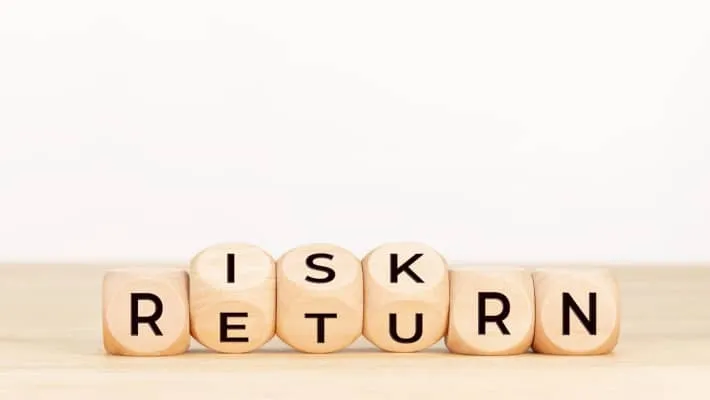Friday Nov 24 2023 07:59

10 min
In today's financial market, various investment vehicles promise both security and returns. Among them, government bond funds have solidified their place as a significant and often sought-after asset. Their relevance and appeal in the contemporary financial sphere make it essential for investors and traders looking for another lucrative financial security.
Shed light on what are government bond funds in this article and highlight their unique features when contrasted with other financial assets.
Government bond funds are specialised investment vehicles primarily focusing on buying and holding government securities. They aggregate funds from multiple investors and then, on their behalf, invest in a diversified portfolio of bonds issued by national governments. This approach offers investors financial exposure to various government securities, which might be challenging to achieve individually.
While the overarching term "government bond funds ''encompasses a broad category, several sub-types fall within this domain. Each has its unique characteristics, risk profiles, and potential benefits. Here's a detailed look at the prominent types of government bond funds:
Treasury funds primarily focus on securities issued by a nation's central government. These securities, often known as treasuries or government bonds, hold a reputation as one of the safest investments. This reputation stems from the fact that the full faith and credit of the respective country backs them.

A hallmark feature of these funds is their safety. The governments of developed nations are less likely to default on their debts. Moreover, treasury funds often come with fixed interest rates, regularly guaranteeing investors and traders a specific interest amount.
Additionally, these funds are highly liquid due to their immense popularity and the sheer market volume. As an illustrative example, consider an investor seeking a stable income stream with minimal risks. They might trade towards a US Treasury bond fund, given its track record of consistent returns and the US government's history of honouring its debt obligations.
Municipal bond funds focus on securities issued by local governments, cities, or other entities to fund public initiatives like roads, schools, and hospitals. These funds offer notable tax advantages, as the interest earned is frequently tax-free at the federal level and, for investors and traders living in the issuing state, can also be exempt from state and local taxes.
Additionally, they present a diverse range of options to cater to various risk and income preferences. Importantly, financing in these funds indirectly supports community development projects.
International government bond funds support government securities from various countries, while global government bond funds encompass both domestic and international territories.
A key attribute of these government bond funds is their geographical diversification, which reduces risk by spreading investments across different economies.
However, they are also susceptible to currency fluctuations that can positively or negatively impact returns. Additionally, the variation in interest rates among countries offers opportunities for potentially higher returns, but sometimes with more significant risks.
To appreciate the uniqueness of government bond funds, one must contrast them with other popular financial options.
Safety: The most distinguishing factor lies in the issuer's creditworthiness. Government bonds, especially those issued by stable economies, are often considered virtually risk-free as the full faith and credit of the respective government backs them.
On the other hand, corporate bond funds depend on the issuing company's financial health. Should the company falter, there's a higher risk of default.

Returns: While government bond funds are safer, this safety comes at a price. The yields on government bonds tend to be lower than those of corporate bonds, reflecting the lower risk associated with government securities.
Nature of investment: While government bond funds involve lending money to the government, stocks and equity funds represent ownership in a company. By investing or trading in stocks, you're buying a piece of the company, hoping the company's value will grow over time.
Risk profile: Equities are typically more volatile than bonds. The value of a stock or an equity fund can fluctuate significantly in a short period due to various factors like company performance, industry trends, and macroeconomic events. In contrast, government bond funds offer a steadier and less volatile investment profile, especially those with short to medium maturities.
Income vs. growth: Government bond funds are typically seen as income investments. They provide regular interest payments, making them attractive to those seeking steady cash flow. Stocks and equity funds, however, are more growth-oriented. While they might provide dividends, the primary expectation is capital appreciation.
The decision to venture into any financial security, especially government bond funds, is essential. One should consider not only potential returns but also the intricacies surrounding such an asset. Delve deeper into government bond funds, and you'll see more than what your pockets will receive.
Every trader ventures on a journey with a specific destination in mind. That destination is your financial objective. Whether you're seeking capital preservation, income generation, or a combination of both, aligning your goals with the nature of government bond funds is important.
Government bond funds primarily support securities issued by the government, considered low-risk. However, the term "low-risk" doesn't mean "no-risk." These funds can still be affected by interest rate fluctuations, geopolitical events, and other economic factors.
Assess your risk tolerance. Suppose you're the kind of trader who gets anxious at the sight of minor fluctuations. In that case, considering how government bond funds fit within your portfolio might be worth considering. Are they an apt choice for you? Can you bear the minimal risks associated with them?
Learn how you can reduce risk: How to diversify your portfolio for 2021
Your asset's time horizon plays a pivotal role in decision-making. Ask yourself, “How long can you commit your funds without needing them?”
Government bond funds often come with various maturities. Some mature in a short span of a few months, while others might take decades. Short-term bond funds might be suitable if you're looking for a quick margin for your funds. However, if you envision a long-term commitment, consider long-term bond funds, which often yield higher returns over prolonged periods.
One might argue that the performance of government bond funds hinges significantly on the prevailing interest rate environment. And they're not wrong. When interest rates rise, bond prices generally fall, which can adversely affect government bond funds. Conversely, bond prices usually rise when interest rates decline, which can benefit these funds.

Before you trade, familiarise yourself with how interest rates are moving. If rates are expected to rise, shorter-duration funds might be more resilient than their longer-duration counterparts. But remember, predictions about interest rates are just that – predictions. One can never be entirely sure.
It's crucial to be aware of the fees and expenses associated with the fund. Even a small difference in fees can significantly affect your returns over the long haul. Look out for the fund's expense ratio, which indicates the annual fee as a percentage of assets managed. This fee is deducted from your returns.
Moreover, some funds may charge a front-end or back-end load, which are sales charges when you buy or sell the fund. Always inquire about these and weigh them against the potential benefits of the fund.
Government bond funds are specialised investment vehicles that acquire and hold government securities. They provide a diversified financial exposure, making them a preferred choice for many investors and traders due to their perceived safety and reliability.
There are various types of government bond funds, such as treasury funds, municipal bond funds, and International and Global government bond funds, each with risk and yield profiles.
Compared to other financial instruments like corporate bond funds and equities, government bond funds generally offer lower risk and potentially lower returns. However, their appeal often lies in their consistent income generation and stability.
While they present an attractive option for those seeking a stable revenue stream, potential investors must consider their financial objectives, risk tolerance, investment horizon, the current interest rate environment, and associated fees before diving into these assets.
Like all assets, thorough research and understanding are important to ensure one's financial goals are aligned with the government bond funds' characteristics.
If you are a beginner trader looking to trade government bond funds, you can trade it on markets.com. Our platform offers a contract for difference (CFD) trading option. In this type of trading, you will be speculating the price of your chosen bonds without having an actual asset.
Since interest rates and various economic elements influence government bond funds, you can leverage the comprehensive news and analysis on markets.com. Our platform serves as a one-stop destination for both trading and in-depth fundamental analysis.
Learn and trade with markets.com: The ultimate trading community!
When considering “CFD bonds” for trading and price predictions, remember that trading CFDs involves a significant degree of risk and could result in capital loss. Past performance is not indicative of any future results. This information is provided for informative purposes only and should not be construed to be investment advice.”